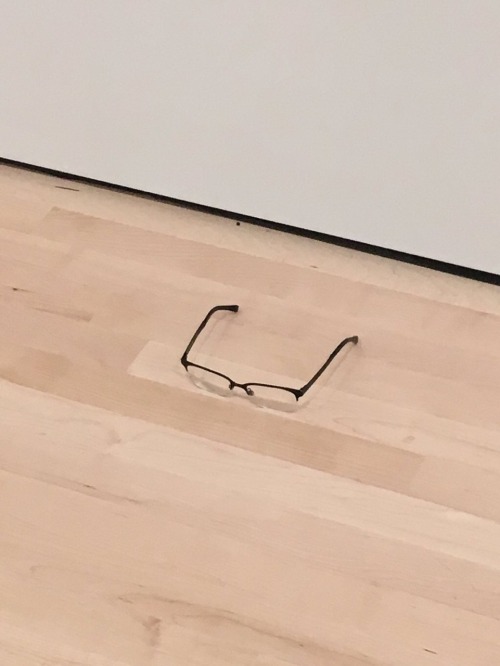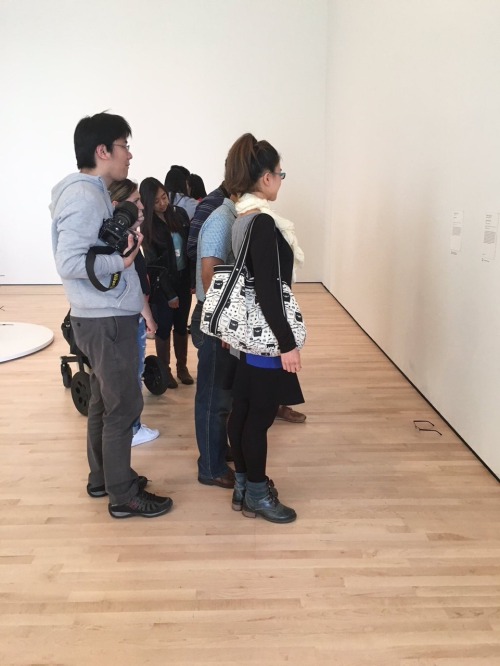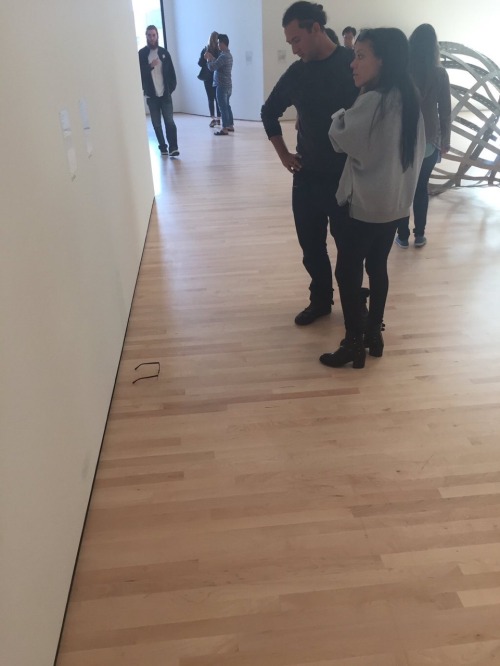julia-irian:michaelbjorkwrites:brawltogethernow:roachpatrol:pervocracy:rikodeine:i love this so much
julia-irian:michaelbjorkwrites:brawltogethernow:roachpatrol:pervocracy:rikodeine:i love this so much i dont know where to start- the comedy itself - the commentary on ‘what is art’- further on what is art: the viewers are interpreting this as art, but the intention of the “artist” was not actually art, so is it art or not? who gets to decide, the viewers or the creator?- the act of placing the glasses and watching the response (and the response itself being that the viewers treated the glasses as art) as performance artlike is this a critique of postmodernism? does the critique betray itself since (one could argue) the viewers interpreting the glasses as art makes them art? or is that so ridiculous that it doesn’t matter? i could go onThe intention of the “artist” was not actually art, but… their intention was to create a specific image for public display in order to evoke a reaction from an audience, and then to create an image of that in order to evoke a different reaction from a second audience.I think they accidentally arted. Twice.art happens in museums whether you like it or notI’ve always respected that last uplifting, quietly threatening comment.“Art happens in museums whether you like it or not” is also kind of equatable to “literature happens in the canon whether you like it or not,” and it actually demonstrates the power of social proof.For example, if I stumbled across Joyce’s writing online without knowing who wrote it, I’d probably get annoyed, frustrated, and dismiss it as unnecessarily convoluted. But if I know it’s Joyce or if it’s handed to me in a literature classroom, there’s enough social proof for me to believe there’s something meaningful here. I’ll give it more if a chance.This, I think, is why you’ll often see artists and writers start out with accessible work, before creating increasingly experimental and challenging work over time. The reason is partially because they develop as artists, but also because they need to build artistic clout to prove to audiences that their work is worth deep, complicated analysis.Joyce is a good example. Finnegan’s Wake was so utterly complex and impenetrable that even after having “proven” himself with earlier works, many were still resistant to the novel. If he’d written the book at the beginning of his career, however, nobody would have given it a chance.Anyhoo, long story short, social proof (such as a museum, classroom, or canon) is a powerful thing – and while it can help us identify complex artworks that are worthy of a deep time commitment, it can also fool us into deeply analyzing something like glasses on the floor.I had a funny / illuminating experience about social proof recently with my partner. I was reading a lot of fanfiction of the show Merlin and had discussed some points about it with him - he hasn’t seen it and is not interested, so he tends to roll his eyes a bit.I then began reading T.H. White’s The Sword in the Stone and giggled loudly at the wonderfully absurd language and jokes throughout. At one point, I read out a passage to my partner, who listened with a critical face (me meanwhile snorting half the lines in laughter). When I was done, there was more eye-rolling and a somewhat dismissive comment.I genuinely was surprised and a bit upset that he reacted so strongly against the excerpt and pestered him about it until he finally said, “I’m not really interested - this is just one more of those fanfictions representing knights’ jousting very inaccurately” (he’s interested in historical battles, weapons, that sort of thing.) I laughed and said, this isn’t fanfiction, it’s T.H.White. I explained about the satirical nature of the scene - it wasn’t inaccuracy but parody, basically. We both have literature degrees and I ended up teasing him to no end about the fact that he did not spot the parody nor found it funny, simply because his prejudice against what he thought was fanfiction blocked him from really giving that excerpt a chance.Started an interesting conversation about Canon and I felt extremely vindicated in my defense of really good fanfiction I’d read. End of story: He’s currently reading The Sword in the Stone and giggling as much as I did. TH White must have won him over What a great (and funny) story! It tells us a lot about how easily we shut down our critical eye when our expectations are low or dismissive. It’s one of the reasons I think it’s worthwhile to always approach a piece of writing optimistically, looking for what’s working as much as what isn’t. It makes reading a lot more enjoyable, too! -- source link




